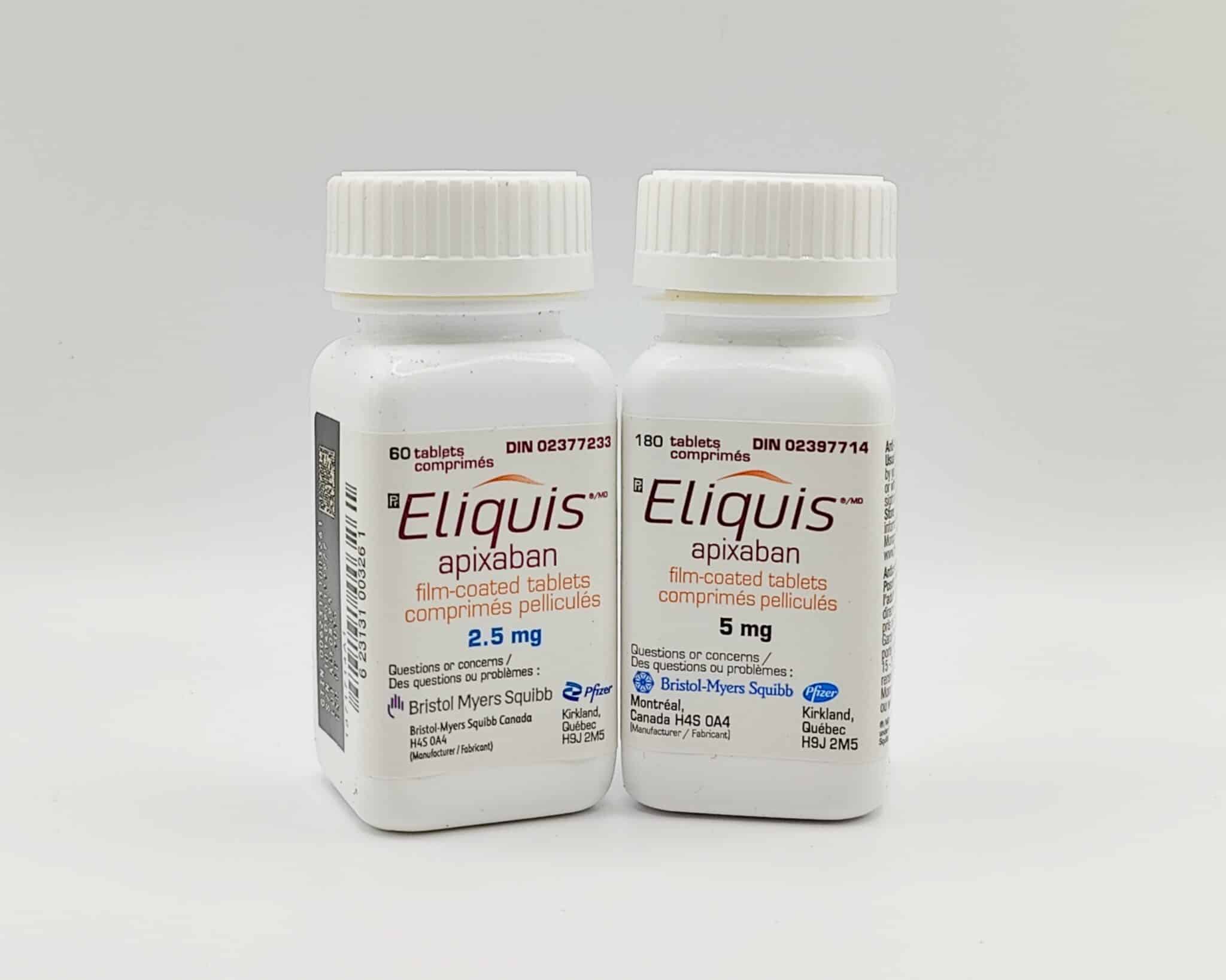Keto and Blood Thinners: Is It Safe to Follow a Ketogenic Diet While Taking Eliquis?
Keto and Blood Thinners: Is It Safe to Follow a Ketogenic Diet While Taking Eliquis?
- Jason K
The ketogenic (keto) diet is widely known for its weight loss and blood sugar control benefits, but is it safe for those taking Eliquis (apixaban)? Since blood thinners prevent clotting, and keto can impact blood viscosity, hydration levels, and nutrient intake, it’s important to understand how these two interact.
This article explores whether keto is safe while on Eliquis, the potential risks, and how to follow both safely.
🔑 Key Takeaways (Quick Overview)
✔ Eliquis (apixaban) is a blood thinner that doesn’t rely on vitamin K, but keto can still affect blood viscosity.
✔ The keto diet can cause dehydration and electrolyte imbalances, which may impact blood clotting.
✔ High omega-3 intake from keto foods like salmon and flaxseeds may thin the blood further, increasing bleeding risks.
✔ If keto leads to significant weight loss, your Eliquis dosage may need adjustment—consult your doctor.
✔ Hydration, balanced fat intake, and regular check-ups can help maintain safety while on keto and Eliquis.
How Eliquis (Apixaban) Works
Eliquis is a direct oral anticoagulant (DOAC) that prevents blood clots by blocking Factor Xa, a key protein in the clotting process. It is prescribed for:
- Atrial fibrillation (AFib) – Reducing stroke risk.
- Deep vein thrombosis (DVT) & pulmonary embolism (PE) – Preventing dangerous clots.
- Post-surgical clot prevention – Often after knee or hip replacement surgery.
Unlike warfarin, Eliquis does not require dietary restrictions for vitamin K (found in leafy greens), but the keto diet can still affect how it works.
How the Keto Diet Affects Blood Thinners Like Eliquis
The keto diet is low-carb, moderate-protein, and high-fat, putting the body in ketosis, where it burns fat for energy instead of glucose.
While keto offers benefits like weight loss and blood sugar stability, it can also:
1. Affect Blood Clotting and Thickness
- Some research suggests low-carb diets can increase blood viscosity (thickness), which may counteract Eliquis’ blood-thinning effects.
- This could raise clotting risks, especially if hydration is not maintained.
- A 2020 study published in the Journal of Clinical Medicine found that low-carb diets may increase hematocrit levels (the proportion of red blood cells in blood), which could contribute to thicker blood.
💡 Tip: Stay hydrated and include healthy fats like avocado and nuts to keep blood circulation optimal.
2. Increase Risk of Dehydration
- The first phase of keto (keto flu) can lead to fluid loss, dehydration, and electrolyte imbalances.
- Dehydration affects blood flow, possibly increasing dizziness or clotting risks.
💡 Tip: Drink at least 8 glasses of water daily and replenish electrolytes (sodium, potassium, magnesium).
3. Thin the Blood Further Due to High Omega-3 Intake
- Keto diets often increase fatty fish, flaxseeds, and walnuts, which are rich in omega-3 fatty acids.
- Omega-3s naturally thin the blood, which could enhance Eliquis’ effects, increasing bleeding risks.
- A study in Circulation found that high omega-3 intake was linked to longer bleeding times, especially in patients on blood thinners.
💡 Tip: Limit fish oil supplements unless approved by your doctor, and monitor for excessive bruising or prolonged bleeding.
4. Impact Medication Absorption Due to Weight Loss
- Keto can cause rapid weight loss, altering how Eliquis is metabolized in the body.
- Significant weight changes may require adjustments in Eliquis dosage.
💡 Tip: If losing more than 5% of body weight, talk to your doctor about monitoring your dosage.
How to Save on Eliquis in the U.S.
Eliquis is one of the most expensive blood thinners in the U.S., costing $500+ per month without insurance. Many Americans are turning to Canadian pharmacies to save money.
👉 You can buy Eliquis from Canada for significantly lower prices—check out:
These options allow Americans to legally purchase up to a 90-day supply of Eliquis with a valid U.S. prescription.
FAQs About Keto and Eliquis
1. Does the keto diet increase the risk of blood clots?
Some studies suggest low-carb diets may increase blood viscosity, which could contribute to clot formation. Staying hydrated and monitoring fat intake can help reduce this risk.
2. Can I take fish oil while on Eliquis and keto?
Omega-3s in fish oil can enhance Eliquis’ blood-thinning effect, increasing bleeding risks. Always check with your doctor before taking supplements.
3. How does rapid weight loss on keto affect my Eliquis dosage?
Losing more than 5-10% of body weight can alter how Eliquis is metabolized. Your doctor may need to adjust your dosage accordingly.
4. Are there specific keto foods I should avoid while taking Eliquis?
- Excessive fish oil supplements
- Very high amounts of omega-3-rich foods (salmon, walnuts, flaxseeds)
- Dehydrating foods like excessive caffeine or alcohol
5. Should I adjust my water intake while on keto and Eliquis?
Yes, dehydration increases clotting risks, so drink at least 8 glasses of water daily and replenish electrolytes to maintain hydration.
Conclusion
The ketogenic diet can be followed while taking Eliquis, but it requires careful attention to hydration, nutrient intake, and medication effects. Since keto can impact blood viscosity and electrolyte balance, patients on blood thinners should be mindful of potential risks, such as dehydration, increased clotting risk, or excessive bleeding due to high omega-3 intake. Monitoring your body’s response to the diet and staying in communication with your doctor is essential to ensure your medication remains effective and safe.
Rapid weight loss on keto may also impact how Eliquis is metabolized, potentially requiring a dosage adjustment. If you experience unusual bruising, prolonged bleeding, dizziness, or other side effects, it’s important to seek medical advice immediately. Before making any dietary changes, consulting your healthcare provider can help determine whether keto is a safe and beneficial option for you.
For those concerned about the rising costs of Eliquis in the U.S., exploring more affordable alternatives through Canadian pharmacies may provide a cost-effective solution. By taking a balanced approach and making informed decisions, you can manage your health effectively while maintaining both your diet and medication regimen.
Reference:


